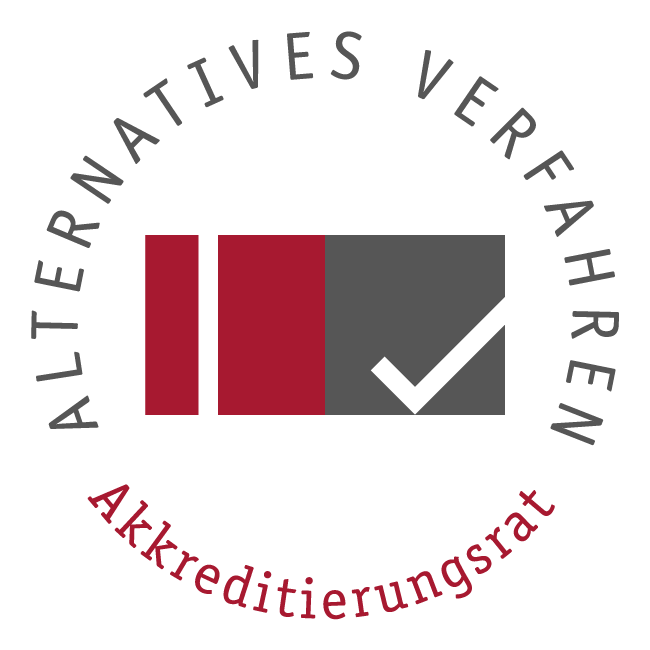Subject of accreditation
The Interstate study accreditation treaty gives the higher education institutions the possibility to choose between programme accreditation, system accreditation and alternative procedures agreed with the Accreditation Council and the respective state. Alternative procedures, which are developed independently by the higher education institutions and which are subject to the same quality requirements as those for programme and system accreditation, are intended to contribute to gaining insights into alternative approaches to external quality assurance beyond the standard accreditation procedures.
Alternative procedures must be accredited so that they can replace programme or system accreditation. The subject of accreditation of the corresponding accreditation procedure is thus the alternative procedure itself. With successful accreditation, the higher education institution receives the self-accreditation rights for the study programmes assessed within the alternative procedure.
In the course of the accreditation of the alternative procedure, a higher education institution must demonstrate that it systematically implements the formal and academic criteria laid down in the specimen decree.
Higher education institutions can use the alternative procedures both in terms of programmes and systems. A positive accreditation certifies that the alternative procedure is suitable for ensuring that the qualification objectives and quality standards of its study programmes are achieved.
Evaluation
The procedure for accreditation of an alternative procedure is a multi-stage peer review. The framework conditions for these procedures are regulated in the Rules of Procedure for Alternative Accreditation Procedures.
The approval of the responsible scientific authority and the Accreditation Council must be obtained before an alternative procedure is carried out. A prerequisite for the approval of the Accreditation Council is the submission of an application. After consent has been granted, the details of the evaluation and implementation of an alternative procedure will be laid down in an agreement to be concluded between the Accreditation Council and the higher education institution submitting the application.
The higher education institution will then submit a self-evaluation report to the head office of the Accreditation Council based on the previous application. The evaluation procedure shall be carried out with the participation of external independent experts from the areas of society relevant to quality assurance, in particular academic experts and experts from professional practice as well as students. The Accreditation Council may carry out the evaluation procedure or parts thereof but may also delegate these activities to third parties. The result of the evaluation procedure is an experts’ report with recommendations for resolutions and assessments.
Decision
The Accreditation Council decides on accreditation at the request of the higher education institution by determining the equivalence of the alternative procedure to the procedures for programme or system accreditation. The application includes the self-evaluation report, the experts’ report and, if applicable, a statement by the higher education institution; it is submitted to the Accreditation Council via the competent science authority.
With the accreditation, the Accreditation Council awards its seal to the alternative procedure. The higher education institution is thus granted the right to award the seal to its study programmes itself, provided that they have successfully passed the assessment procedure provided for in the accredited procedure for study programmes.
The Accreditation Council's approval decision, the experts’ report and the decision on the award of the seal are published in the central database of accredited study programmes and system-accredited universities.
As a rule, two years before the accreditation period expires, the alternative procedure is evaluated by an independent, scientifically oriented institution which reports to the Accreditation Council. The Accreditation Council makes a recommendation on whether the alternative procedure should be continued on the basis of the evaluation results and the results of the monitoring of the procedure.